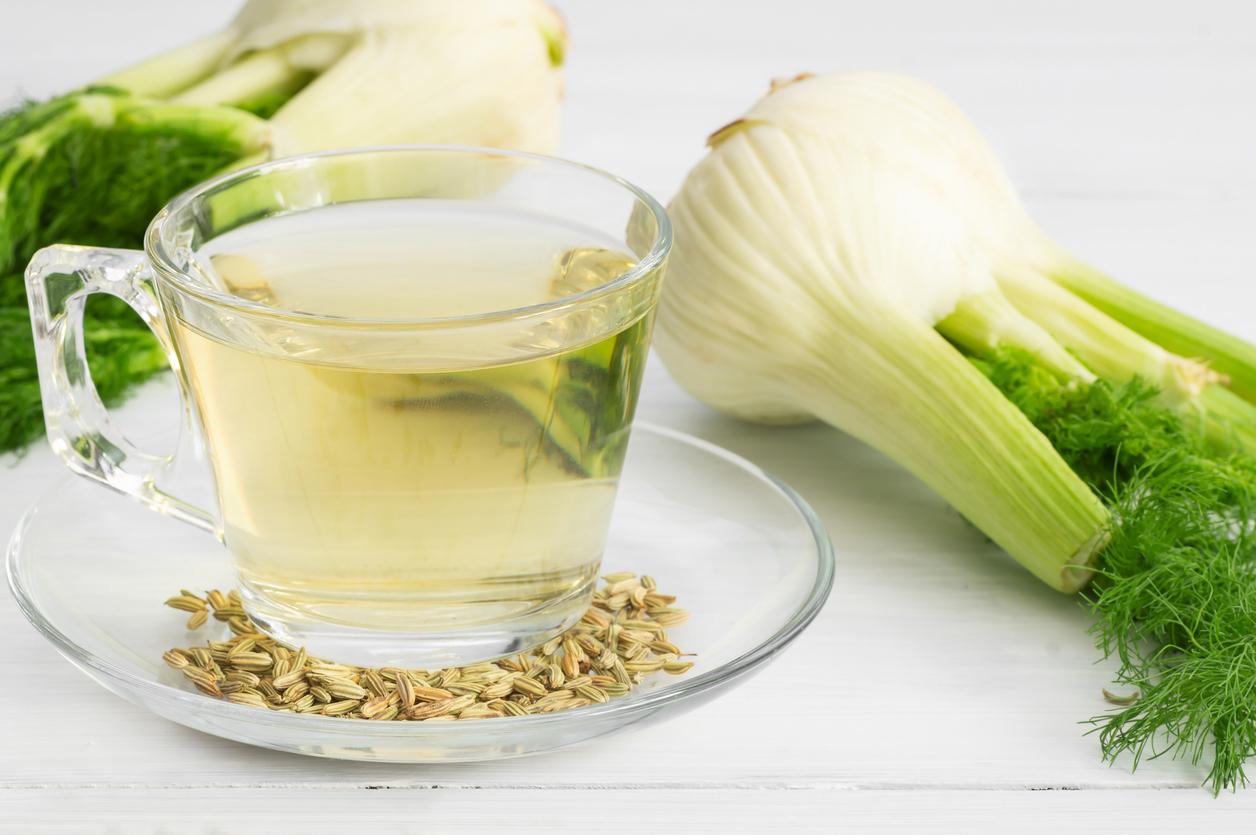The European Medicines Agency (EMA) recommends that pregnant and breastfeeding women avoid consuming fennel teas because of estragole, a component that could have carcinogenic effects.

- The European Medicines Agency advises pregnant and breastfeeding women to avoid consuming fennel tea.
- The reason is the presence of estragole, a potentially carcinogenic compound.
- Estragole content is difficult to measure, making it difficult to assess the risks associated with its consumption.
For several generations, fennel tea has been recommended to pregnant and breastfeeding women, especially to stimulate lactation. But this old wives’ tale is now being called into question. In a communicatedthe European Medicines Agency (EMA) indicates that excessive consumption could be dangerous for health.
Fennel teas contain an ingredient with carcinogenic effects
While previous studies, including one published in the international journal of pediatricsextolled the merits of fennel teas, new work, reported by the EMA and the Committee on Herbal Medicinal Products (HMPC) shows “carcinogenic and genotoxic effects [pouvant endommager l’ADN] estragole“, an aromatic organic compound in fennel.
So the recommendations are to “0.05 milligrams of estragol per person per day“maximum for adults while emphasizing that”In the general population, exposure to estragole should be kept as low as possible.” But it is especially for pregnant and breastfeeding women that the EMA strongly advises avoiding fennel herbal teas.Safety during pregnancy and lactation has not been established. […] In the absence of sufficient data, use during pregnancy and lactation is not recommended.“, indicates the health authority. Finally, children under four years old should also avoid consuming this drink.
The problem is the level of estragol in herbal tea bags, which is said to be between 241 and 2,058 micrograms per liter.”The estragole content varies from one plant to another. In most cases, we will not reach dangerous doses, but the problem is that we do not know.underlines Sylvie Michel, professor and member of the National Academy of Pharmacy, at BFMTV.com. We know that the risk is associated with a high content but we do not know this content.”
Inform women but don’t scare them
For the moment, only the National Association of Liberal Midwives and the Association Information pour l’allaitement have communicated on this issue. On the other hand, the French Society of Gynecology, the National College of Midwives of France and the National College of Gynecologists and Obstetricians have not responded to BFMTV.com because “none of them had any information on this subject.“The National Agency for the Safety of Medicines and Health Products has indicated that it is not competent to answer this question and has referred to “the competent authority in France“, or the National Agency for Food, Environmental and Occupational Health Safety, which has not yet provided any response.
“We must not scare all these women who have consumed fennel, we must warn of the risks but without scaring them.“, says Eliette Bruneau, president of the national association of liberal midwives in France.

















